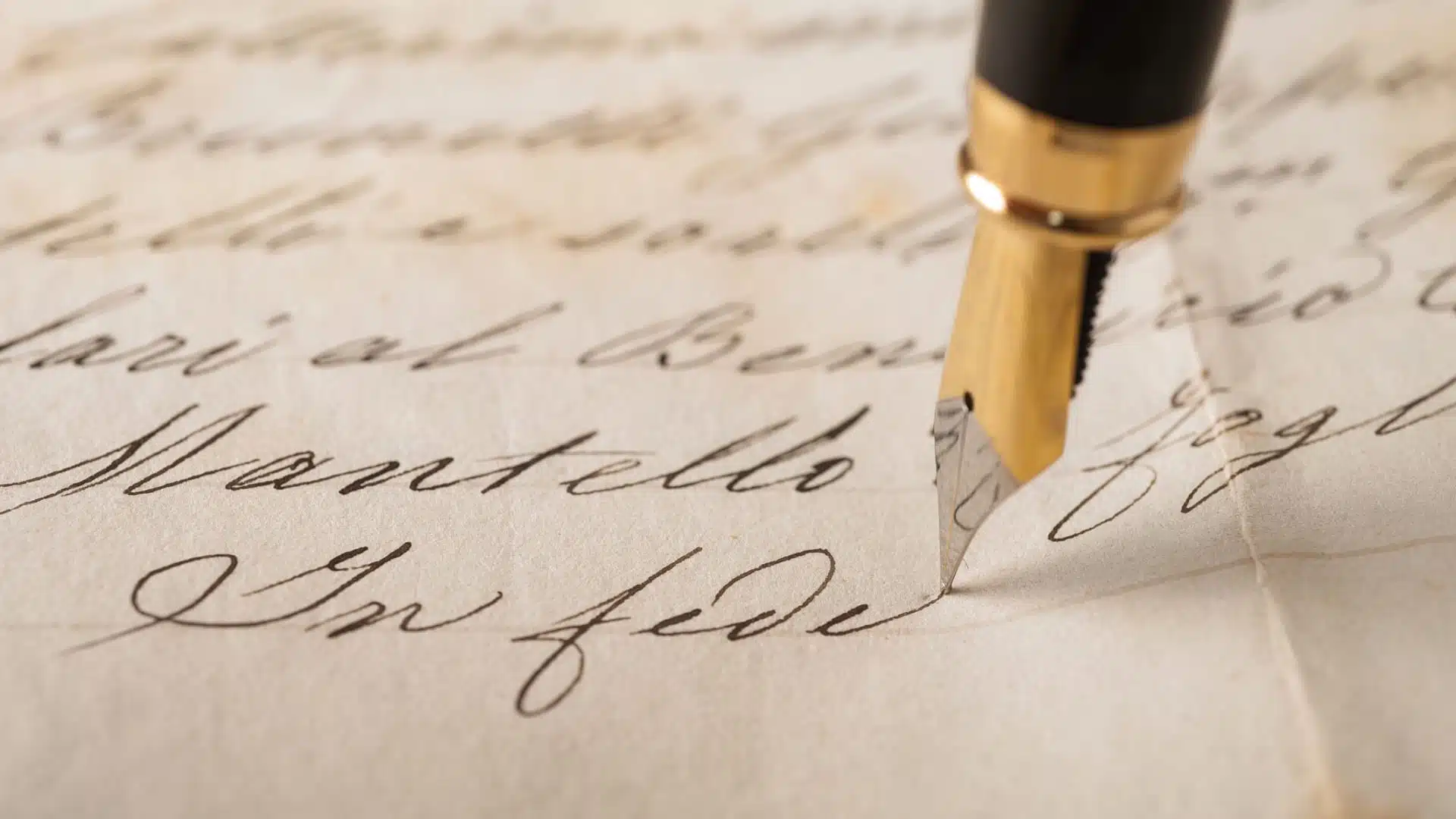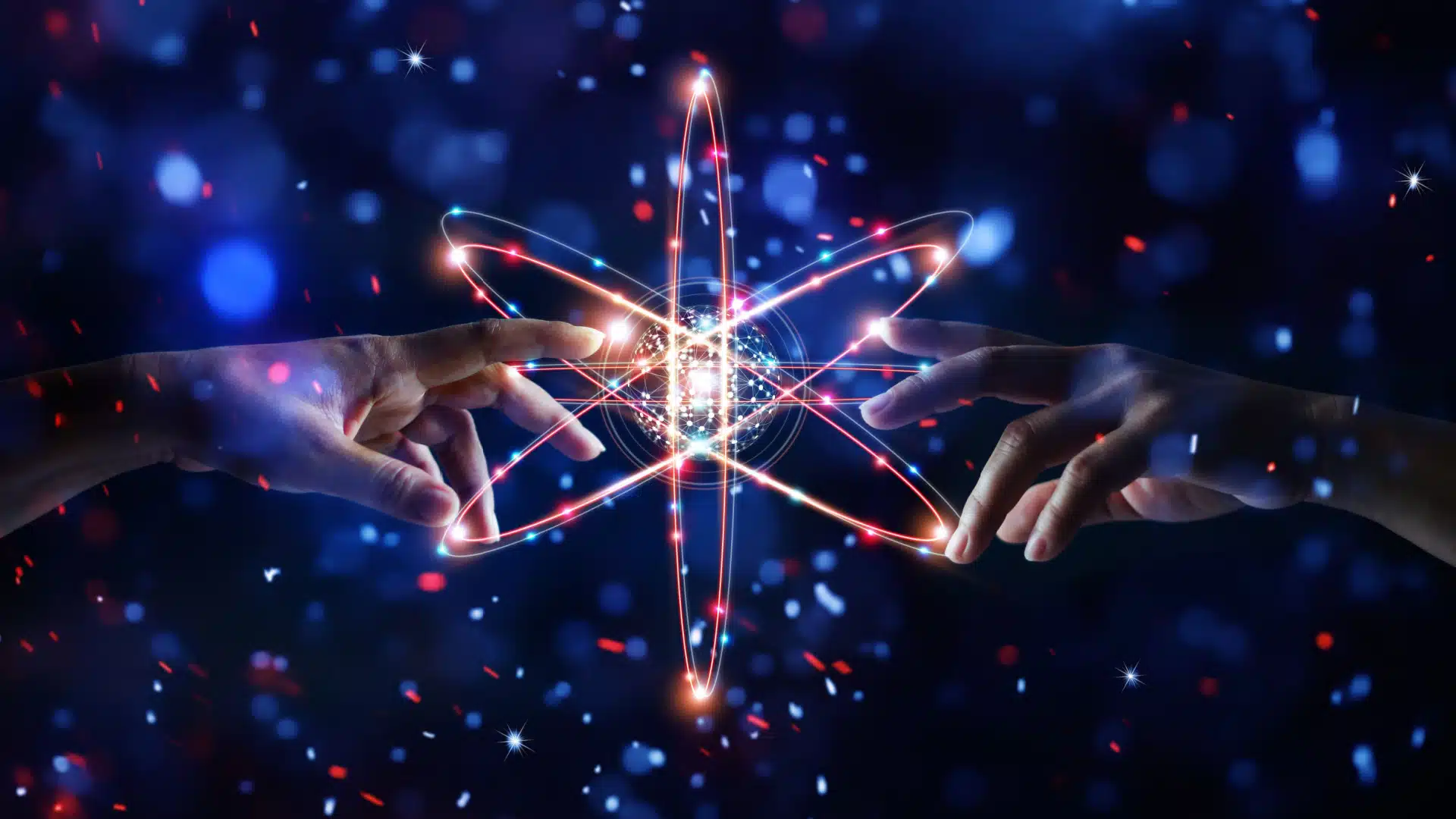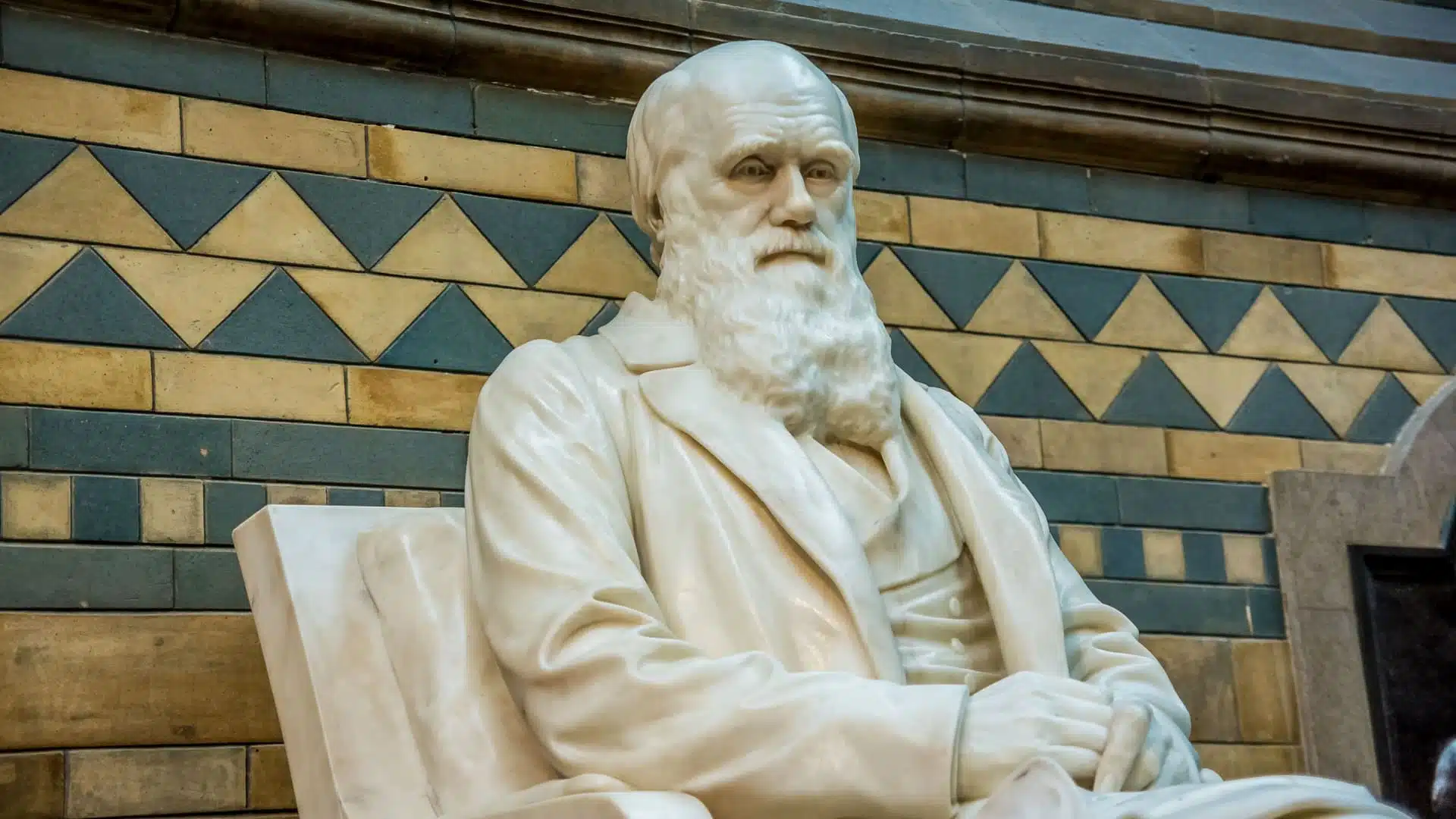Humanity conquered the natural world. We built roads and civilizations and then reached for the stars.
Which of these achievements was most crucial to our development as a species? Which ones brought us the world as we know it?
The Greatest Human Achievements Throughout History

The four achievements in the infographic are only a small fraction of humanity’s ingenuity.
Explore 21 of humanity’s most impressive achievements, from earliest to most recent.
Fire

Harnessing fire allowed us to cook food, light the way at night, heat our hairless bodies in the cold, and protect ourselves from predators.
There’s evidence that humans learned to control fire nearly a million years ago, making it a vital first step in our development.
Empathy

Humans are the only species that can truly feel the suffering of another. Though there are no records of early empathy, we know early humans had it because they couldn’t have achieved everything else on this list without it.
Empathy enables us to build communities. Without it, our selfishness would reign supreme, and we’d be no better than the wild animals who only care for their own needs. Empathy allows us to work together in cohesion to ease the suffering of all. It’s one of humanity’s most remarkable traits.
Agriculture

Taming the wild was humanity’s first step toward civilization. When we learned to grow and harvest plants, we could build communities around our fields.
No longer beholden to yearly rains and migration, we could put down roots and solve the world’s biggest problems.
Irrigation

The first problem humans solved after discovering agriculture was watering the plants year-round. We achieved this through irrigation, the art of sending water from rivers and lakes to the fields.
There’s evidence that humans practiced irrigation as early as 6000 BC, taming the rivers to support the ever-growing communities.
Biological Engineering

We think of biological engineering as a modern feat, but early man used similar methods to cultivate crops from the earliest days of agriculture.
Though we didn’t study genetics and inheritance until the 1800s and didn’t take it seriously until the early 20th century, humans have been selectively breeding plants and animals for millennia. We may not have understood the science behind it, but we learned that crossing pairs with desired traits would lead to those traits in offspring.
It’s a magnificent achievement of early man that we rarely consider.
The Written Word

Humanity’s ability to record our thoughts and ideas helped us achieve greatness. Scientists no longer had to start from scratch; they could build on the ideas of their forebearers.
Archeologists have found the earliest hints of writing in ancient cuneiform and hieroglyphs, dating to the 4th millennium BC. These early symbols slowly morphed into a complete written language.
Math

Where would humans be without mathematical reasoning? Our ability to create complex equations using observations of the natural world and simple numbers allowed us to achieve the most remarkable feats.
The earliest evidence of math dates to Ancient Mesopotamia, where merchants used simple equations for commerce. From there, we discovered Pythagorean theorems, Euclidian geometry, and numerous other theorems which served as the cornerstone for later achievements.
Philosophy

Humanity’s ability to use mathematical reasoning led directly to another massive breakthrough: philosophical reasoning.
Our ability to consider the past’s connection to the present, explore abstract ideas, and think about the intersectionality between seemingly unrelated ideas propelled us to greatness.
We recorded these thoughts so others could build upon them and pondered our ultimate place in the universe. We use reasoning to make the world better, not only for ourselves but for everyone around us.
Mankind’s early thinkers led the way to the social and political constructs we enjoy today.
Indoor Plumbing

Biological creatures create biological waste, but humans found a great way to handle it in a sanitary way.
The earliest records of indoor plumbing date to the 3rd millennium BC. The ancient Romans had a complex plumbing system separating fresh water from sewer water.
Our innovations in plumbing allowed us access to fresh water and helped keep the streets sanitary.
Literature

We rarely consider humanity’s impressive feat in creating literature. But humans are the only creatures who make up stories. We’re the only beings with imaginations allowing us to dream up new worlds, create fictional characters, and use allegory to describe the world we live in.
Though myths and legends have existed since the dawn of humanity, the earliest known examples of literature date to the third millennia BC.
The Printing Press

The printing press made literature accessible to the masses. Before the invention, very few could read and write because reproducing books was time-consuming. The printing press changed the game.
When printing got cheaper, humans could create and distribute books on a broader scale. It paved the way for
The ability to print and distribute books on a large scale paved the way for wide-scale education. It allowed us to share ideas that were previously limited to the extremely wealthy who could afford handwritten books.
The Scientific Method

People were conducting experiments and making discoveries well before the Middle Ages. Still, it wasn’t until the 15th century that someone developed a system that allowed us to seek truth without bias.
Sir Francis Bacon developed the scientific method, a process for developing and testing hypotheses in a logical procession to discover the ultimate truth in a system. Though it’s been tweaked over the centuries, modern scientists still use the framework to test and build new theories.
The Laws of Motion

Humans understood that things moved, but we didn’t understand how until Sir Isaac Newton developed his laws of motion in the 17th century.
Newton discovered gravity and described how bodies attract each other. He invented new math to verify his theories and lent his name to an entirely new study of physics.
His work helped us understand the physics behind movement, paving the way for the advances in physics of the 18th and 19th centuries.
The Theory of Evolution

Charles Darwin’s study on evolution via Natural Selection sparked massive controversy, but his findings, though polarizing, marked an enormous shift in mankind’s understanding of the world and our place in it.
Prior to Darwin, religious institutions had a monopoly on the questions of who we are and where we came from. The Theory of Evolution changed the game, showing that living beings don’t spontaneously appear but that we evolve through centuries of adaptation.
Harnessing Electricity

We saw lightning and said, “I want some of that!”
Though Benjamin Franklin’s work in the 18th century discovered electrical currents, we didn’t learn to harness their power until Edison and Tesla came along a century later.
The greatest minds of the 20th century harnessed one of the most incredible powers on Earth to give us the luxuries we enjoy today.
Vaccines and Antibiotics

Once we mastered the macro world, we set our sights on the micro.
Discovering that tiny organisms are responsible for most illnesses and finding ways to defeat them helped us all live longer, healthier lives.
Relativity

Though we haven’t fully unlocked all the secrets of the universe, the theory of relativity was a giant step forward.
Einstein expanded on Newton’s work, helping us understand the relationship between space, time, and the fabric of our universe. We now know that many measurements depend on perspective, and the universe isn’t as static as it seems.
These theories led to a greater understanding of the cosmos and our place in the universe.
Splitting the Atom

Humans discovered the basic building blocks of matter. Still unsatisfied, we split them open to learn how things work and harness the energy locked inside.
Our work with quantum mechanics helped us understand the strong and weak nuclear forces, radiation, and, unfortunately, how to create powerful weapons.
Computer Chips

The advances of the last few decades are all due to our ability to make natural materials think. Silicon, sand, and metals were all placed together to store and process information.
The computer chip will stand proud as one of humanity’s greatest achievements, an invention that has brought us into the modern computer age.
Reaching the Moon

We’re the only known species to purposefully leave our planet in an attempt to explore the unknown. We conquered gravity by sending a man to the moon and returning him safely.
Now, we’re working on new endeavors to send humans even further into space to colonize the closest planet in our solar system. Who knows what we’ll accomplish from there?
The Internet

Mankind created a global information network that is accessible to anyone anywhere in the world. Anything you want to know is at your fingertips.
We can talk to someone on the other side of the planet in an instant, and we can share photos and videos with our favorite people at once.
But it’s far more than that. For the first time ever, regular folks had the same platform for sharing their voices as the wealthy elite. Information and idea sharing exploded.
However, the very things that made the internet significant may cause its downfall. The internet is entering its mid-life crisis. Small voices and independent publishers are being pushed out by giant corporations and monied interests.
If we don’t act to fix it, we’ll lose the most crucial aspects of this massive achievement.
Meet the People Responsible for These Innovative Changes

Science changed the world. These famous scientists helped make our future what it is today.
Humany Inguenity Knows No Bounds
Humanity achieved massive feats over the millennia, and I hope we don’t stop. Technology tends to advance exponentially, so I can’t wait to see what impressive achievements this next century brings!

